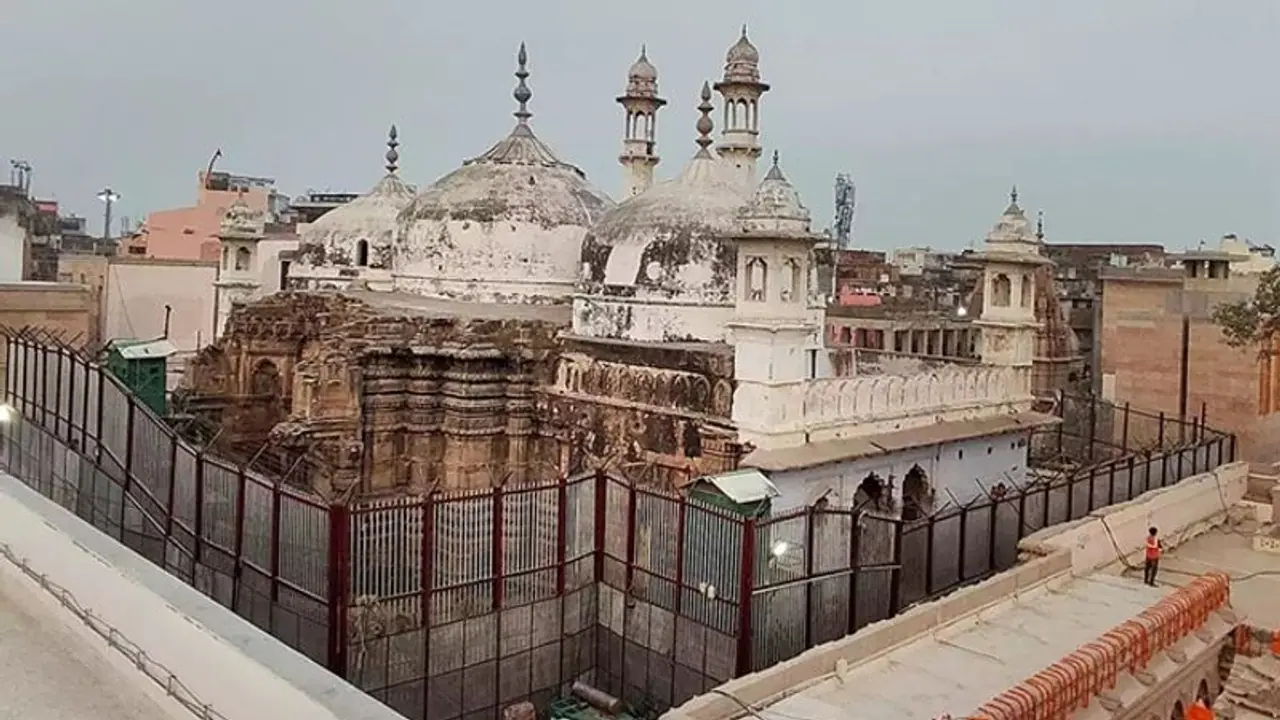During a court-mandated survey of the mosque on May 16 last year, a structure was discovered, which the Hindu side claimed to be a "Shivling," while the Muslim side described it as a "fountain." This finding further added to the complexities surrounding the site located adjacent to the Kashi Vishwanath temple.
A team of the Archaeological Survey of India (ASI) on Monday (July 24) began a scientific survey of the Gyanvapi mosque complex in Varanasi, Uttar Pradesh. According to sources familiar with the matter, the survey is currently underway, despite the mosque management committee's recent petition in the Supreme Court. The committee has filed the petition in response to the Varanasi district court's order, which permitted the inspection.

On Sunday, the ASI team arrived in Varanasi, fully equipped for the task at hand. A video shared by a news agency captured the moment when a UP Police team entered the Gyanvapi mosque complex, marking the beginning of the ASI survey. The survey team consists of approximately 40 members, including ASI officials, four Hindu women plaintiffs along with their counsels, as well as representatives from the Gyanvapi mosque management committee.
In response to a petition filed by the Hindu side, the Varanasi court issued an order for a "scientific survey" of the entire Gyanvapi mosque premises to be conducted by the ASI.
The petition, filed in May, was initiated by five women who had previously sought permission to pray at the "Shringar Gauri Sthal" within the shrine complex. During a court-mandated survey of the mosque on May 16 last year, a structure was discovered, which the Hindu side claimed to be a "Shivling," while the Muslim side described it as a "fountain." This finding further added to the complexities surrounding the site located adjacent to the Kashi Vishwanath temple.
On Friday, the Varanasi district court issued a significant order for an extensive survey of the Gyanvapi Masjid by the ASI (Archaeological Survey of India) to determine if the mosque was constructed on the site of a pre-existing Hindu temple. The court emphasized the importance of this scientific investigation to reveal the "true facts" surrounding the disputed site.
However, the court directed the exclusion of a specific section that has remained sealed since the Supreme Court's order in May 2022. This sealed area is where Hindus claim a Shivling was discovered, while Muslims assert it is part of a fountain.
Previously, the Supreme Court had ordered the protection of the area surrounding the claimed 'shivling' after it was found during a video survey of the complex, ordered by another court. This complex legal situation adds to the ongoing complexities and sensitivities surrounding the Gyanvapi Masjid site.
